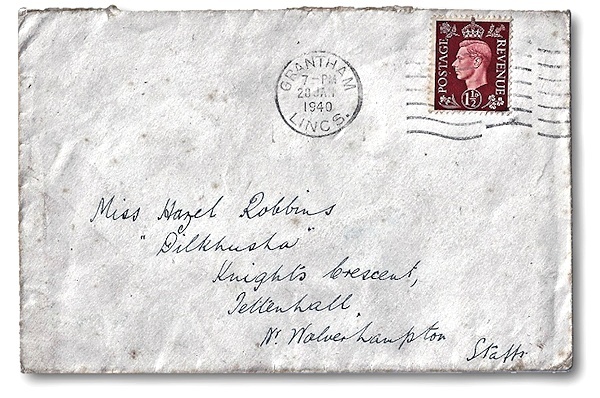 |
|
| News About Us Membership Events Links |
|
LOOSE LIPS AT BOMBER COMMANDJohn G. Sayers A January, 1940 letter that recently came to light describes some serious deficiencies in Bomber Command during the early years of the Second War, and hints at others. The letter should never have been written - or sent - because it discloses many secrets. Military historians and researchers will be vitally interested in its contents. The writer's disclosures begin: So, we learn that the bombers were neither designed nor equipped for the high altitude flying that was necessary to escape German flak and fighters. One can only pity the poor men that had to cope with this lack of foresight. The next paragraph discloses even more:
A "secret teleprinter organization over most of England"? At this rate, it won't remain secret for very long! Other deficiencies are described: Pilots who can't find their bearings? This suggests that pilots and navigators lacked adequate training, and that there might have been fewer planes lost if pilots had been trained properly. The phrase "…but I daren't" puts this letter in context. The writer ("Will") knows that his disclosures are wrong, but his awareness is tempered by his wanting to tell the recipient, Miss Hazel Robbins, what he is doing. He ignores the widespread warning that "Loose lips sink ships". This letter would have been of considerable strategic interest to the enemy if it had fallen into the wrong hands, but is highly informative for today's researcher of the Second War.
|
|
|
Home | News | About Us | Membership | Events | Links | Contact | Item of the month | Articles |
| Copyright © The Ephemera Society 2025. All Rights Reserved. |
